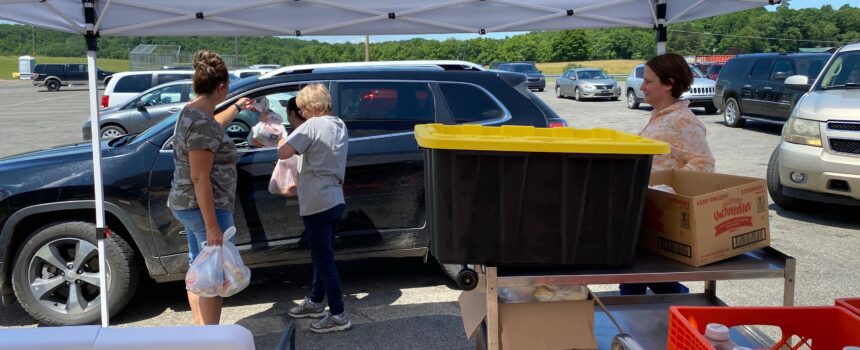Though the pandemic initially placed a substantial strain on local school districts’ free breakfast programs, the creativity of the Food Bank’s child nutrition team allowed these districts to not only transcend the obstacles brought on by the pandemic, but even to surpass their pre-pandemic levels of success.
“Typically, we don’t offer Impact Grants to schools, but because of the pandemic and because there were lots of questions around how schools were going to operate [during 2020-2021] school year, we wanted to try to do something a little bit different,” Child Nutrition Outreach Supervisor Kelsey Gross explains.
“Normally, we provide these grants to summer food partners,” Child Nutrition Outreach Coordinator Mara Babilya adds. “But, this year, a lot of our partner food service directors weren’t sure how they were going to meet the new standards” which were caused by the on-going COVID-19 crisis, such as the necessity of prepackaged grab-and-go food options in classrooms in place of cafeteria breakfast lines.
The funding was substantial enough to provide two rounds of grants during the 2020-2021 school year and will also allow for two rounds during the 2021-2022 school year.

“The impact grants are really there to allow school districts to get the equipment that they need. We make it really easy for schools to just request smaller amounts of money to get what they need to be able to operate” and accommodate the new expectations ushered in by the pandemic, Kelsey clarified.
In the last year, schools have used these grants to purchase items such as carts, freezers and packaging equipment, which increased their capacity to serve the children in their districts. After receiving a grant, one school district’s capacity expanded from 2,600 breakfasts a month to 9,400 breakfasts a month.
Moreover, Kelsey adds, “COVID sort of forced school districts to opt into alternative breakfast models, like serving breakfast in the classroom, that we’ve found in all of the years we’ve been doing breakfast outreach are really the best way to serve kids.”
The impact the grants have already had on our community is evident.
A staff member at South Allegheny School district shared “what makes me the most happy about the mobile cart is that we are now serving a healthy breakfast to a greater percentage of children at the elementary school. This cart has allowed us to get food to other locations in the building where the children are able to visualize the food items and therefore, want to take part in the school breakfast program.
Previously, they were told to go to the cafeteria if they wanted breakfast, but many children did not want to, or were scared to go into the cafeteria (especially the really young children, because the older children were eating breakfast at the same time as them). Now, however, every child coming off the bus walks past our breakfast cart and is able to take a healthy breakfast right to their classroom and eat it there. ”
Kelsey and Mara hope that the next round will help even more schools opt into such models and anticipate the issuance of these grants will continue in the years to come.
